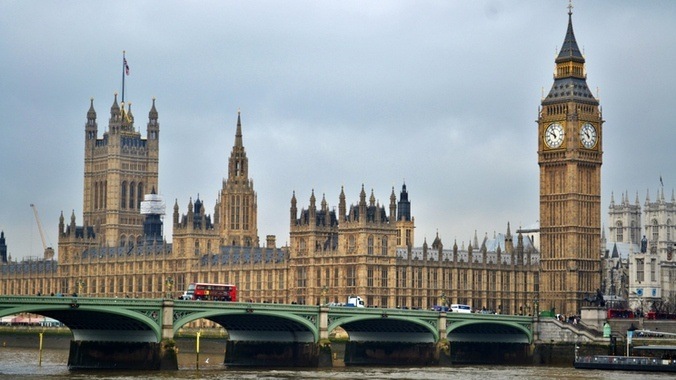The April 2021 rollout of the Off-Payroll Tax to the private sector was confirmed this afternoon after Schedule 1 of the Finance Bill 2019-21 was passed through the Report Stage unchanged.
The Report Stage represented the last realistic opportunity for MPs to prevent a 2021 implementation of the draconian measures in their current format. The Bill is now heading towards its Third Reading and then through the Lords, a process which is largely ceremonial.
Though three amendments to the legislation were chosen for debate in the House of Commons by the Speaker, only one was voted on. Unfortunately, the proposal for a further two-year postponement fell short of a majority vote, losing by 317 votes to 254.
“It’s extremely disappointing that after four years’ campaigning, we have not achieved our primary aim of stopping the legislation,” comments Dave Chaplin, ContractorCalculator CEO and director of the Stop the Off-Payroll Tax campaign.
“We, including our 4,000 campaigners, did everything we could, while the House of Lords Finance Bill Sub-Committee’s report into the so-called reforms accurately detailed the damaging effect these changes will have on the UKs flexible workforce.”
Strong Off-Payroll opposition goes unrewarded
Staunch cross-party opposition to the Off-Payroll Tax was evident through the tabling of numerous amendments to the Finance Bill, three of which were selected for debate by the Speaker. These were:
- An amendment requiring that a comprehensive review of IR35 precedes any private sector implementation, tabled by the Liberal Democrats
- An amendment tabled by a cross-party group of politicians led by Conservative MP David Davis, proposing a further delay of two years
- An amendment preventing a rollout until employment rights accompanying any ‘inside IR35’ status assessments are introduced to employment law, tabled by the same Davis-led group of politicians
The latter proposal would have feasibly solved the problem of ‘zero-rights employment’, an inherent product of the Off-Payroll legislation’s imbalance of power and an issue highlighted numerous times by ContractorCalculator and within the Lords report.
Meanwhile, the Scottish National Party (SNP) attempted to remove the legislation from the Finance Bill altogether, though this amendment was not selected for debate by the Speaker.
Ultimately, as Chaplin highlights, support for the contract sector demonstrated by some MPs was not reciprocated by others: “We are delighted that MPs tabled numerous amendments to the Finance Bill to prevent the damage, but sadly, the majority of MPs have chosen not to back them in sufficient numbers.”
Commons debate lays bare Off-Payroll issues
The subsequent debate in the House of Commons laid bare a number of inherent problems with the Off-Payroll Tax in its current format. With the amendment proposing a further two-year Off-Payroll postponement viewed by many as promising the greatest chance of success, several MPs argued that a 12-month Off-Payroll postponement would be insufficient to help shepherd the UK out of the position imposed by the coronavirus pandemic.
Davis stressed that additional time was necessary for Government to follow the Lords’ report recommendations and undertake a comprehensive review of IR35. He would go on to cite the Lords’ report, which criticised Government for considering taxation of the self-employed too narrowly, and simply in terms of tax take. Davis observed that this approach fails to consider the unintentional behavioural consequences for UK plc and the economy.
This argument was arguably vindicated when, in responding to calls for the Off-Payroll legislation to be removed from the Finance Bill, Financial Secretary to the Treasury Jesse Norman plainly argued that such action would cost the country “many millions of pounds”.
Government condemned for disregarding self-employed
The Off-Payroll Tax’s advancement of zero-rights employment was also a problem highlighted by many. Acknowledging the divergence from the Government’s stated intentions, Dr Rupa Huq stated: “We were told that we would be world beating on employment rights. Now we are heading to zero-rights employment.”
In response, Norman would dismissively suggest that the limited benefits that contractors can claim from their personal service company (PSC), such as access to statutory maternity pay, invalidates this argument.
The Financial Secretary to the Treasury’s demeanor was arguably reflective of a Government that seems resistant to reason. This was not lost on Alison Thewliss MP, who noted that Government seemed “intent on ploughing on regardless”, having failed to learn from the public sector’s experiences of the Off-Payroll legislation.
Meanwhile, Ben Everitt MP compared the Off-Payroll Tax to “using a sledgehammer to crack a nut”, whereas Huq questioned Government’s intentions regarding a promised review of self-employment, asking when it was likely to materialise before adding: “Will it simply sit on a dusty shelf when it does?”
HMRC tactics pose hurdle to widespread Off-Payroll compliance
For Chaplin, attention now turns to helping UK industry adapt to the impending changes. A key component of this will involve discouraging clients and agencies against conducting risk-averse blanket ‘inside IR35’ determinations, an approach that has been proliferated by HMRC’s aggressive discourse surrounding the Off-Payroll Tax, and one that forces contractors into zero-rights employment.
“Moving forward, the market now needs to prepare. With careful planning, firms have nothing to fear and can hire freelancers compliantly. The 2017 public sector Off-Payroll rollout provided a dress rehearsal, showing firms and contractors what will happen if they do not prepare properly. We now need to work together to avoid a similar scenario.
“Over the next year we will be seeing more clarity from the courts, as binding authorities are released. Most of these are likely to favour the self-employed and provide a legal bedrock upon which firms can compliantly hire contractors, without concerns over repercussions. Provided firms work with specialists in this field, they should have nothing to fear.”

